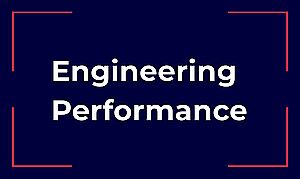Checking air quality - Clean air at the workplace with certainty
Protect the health of your employees and ensure that your production processes run smoothly: Our experts determine the air quality in your production halls and buildings, to give you peace of mind that your people, machines and products are fully protected against air pollution at all times. Our services are aimed at industrial companies, building operators and construction firms.
Air quality indoors and at workplaces according to TRGS 402 (German Technical Regulations for Hazardous Substances)
As an accredited test laboratory according to DIN EN ISO/IEC 17025, we carry out measurements and analyses on air quality according to the current standards and guidelines. These include:
- Measurements at the workplace (indoor and outdoor) according to TRGS 402 (determination and assessment of health risk during activities with hazardous substances: inhalative exposure). Evaluation of the workplace measurements against the workplace limit values for air contaminants (TRGS 900).
- Recommendation of further measures in case of need for action.
- Evaluation of planned or existing occupational safety measures regarding activities with hazardous substances.
- Determination of inhalable and alveolar dust fractions according to DIN EN 481
- Determination of the dusting behaviour of solids (hazardous substances) according to DIN EN 15051
Employers are obliged to adequately protect their employees when handling hazardous substances. Protection includes compliance with existing limits for hazardous air contaminants, in other words, the provision of acceptable air quality in the workplace.
When measuring at the workplace, we reliably determine the concentrations of different groups of substances. These include the following:
- Group 1: Aerosols (without fibrous dust)
- Group 2: Fibrous dusts
- Group 3: Organic gases and vapours
- Group 4: Inorganic gases and vapours
- Group 5: Additional parameters: cooling lubricants (aerosol & gas), diesel engine emissions and diisocyanates
Depending on the results, we propose actions to guarantee compliance with the workplace limits (according to TRGS 900). Upon implementation of these measures, we perform a repeat assessment to check effectiveness and document that you comply with the current legal requirements.
Air recirculation: dust extraction according to TRGS 560
As an accredited test laboratory according to DIN EN ISO/IEC 17025, we perform tests on dust extractors and industrial vacuum cleaners according to Annex AA of DIN EN 60335-2-69. We can also carry out acceptance tests of stationary dust extractors on your company premises. This is especially relevant for dust extractors, stationary vacuum cleaners and other dust-removing machines that are not type approved. Such equipment used for separating critical hazardous substances from the return air must be tested by an accredited institute, as a certificate of conformity with the relevant technical regulations is required by the supervisory authority.
This topic is also of particular interest due to the requirements of the new TRGS 561 "Activities with carcinogenic metals and their compounds".
Indoor air quality
In order to determine and assess possible hazards, e.g. from outgassing or abrasion of building materials or mould infestation, our experts measure the air quality in your premises according to DIN EN ISO 16000 and the VDI 4300 guideline (indoor air measurements).
In addition to recording indoor air contaminants, we carry out particle measurements and conduct other tests related to air quality, for instance, for classifying and checking the integrity of clean rooms, operating theatres and server rooms etc. These measurements are carried out in accordance with DIN EN 14644 "clean rooms and associated controlled environments" or VDI 2083. Businesses, building operators, construction firms and public institutions benefit from our expertise in this field.
Particle and fibre analysis: Laboratory testing for the protection of man and the environment
Dust generating goods (dry bulk materials) play an important role in many industrial sectors as raw materials, intermediate or end products. They can, however, also pose a significant health risk when dust particles are released into the air. This risk depends on the dust content and the particle size distribution.
In the interests of health and safety and environmental protection, DMT performs testing to determine and assess the dusting tendencies of dry bulk and other dust-generating materials.
We offer the following laboratory methods for characterizing your dusts or powders:
- Determination of the dust generation tendency of solids (hazardous substances) according to DIN EN 15051
- Determination of the particle size distribution (of both the powder and the airborne fraction)
- Determination of fibre length distribution (e.g. of microplastics)
- Pycnometry
- BET analysis
With our internally developed measuring method (Heubach/DMT process) we also measure and evaluate the dusting behaviour of substances in line with VDI 3790 (emission of dusts from diffuse sources) and the EU regulation for the registration, evaluation, authorisation and restriction of chemicals (REACH).
Further services in the field of air quality can be found on our Plant and Product Safety website.


